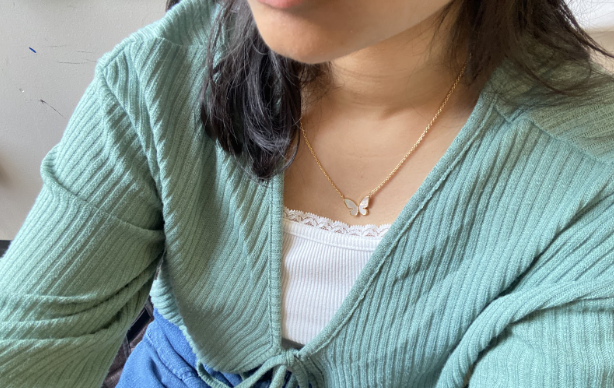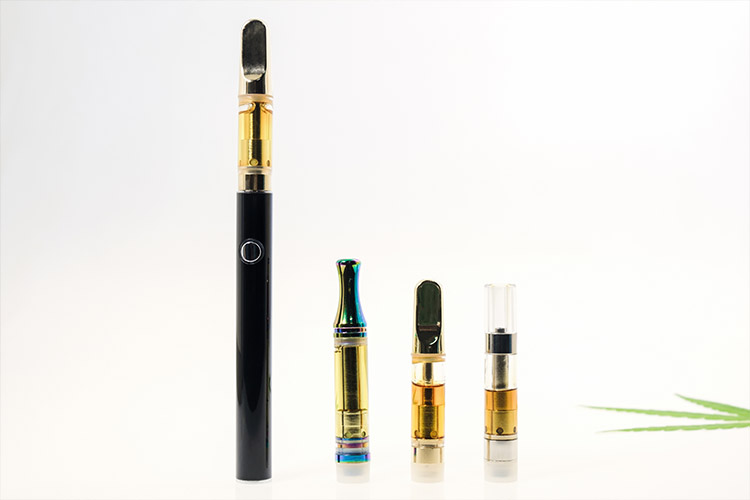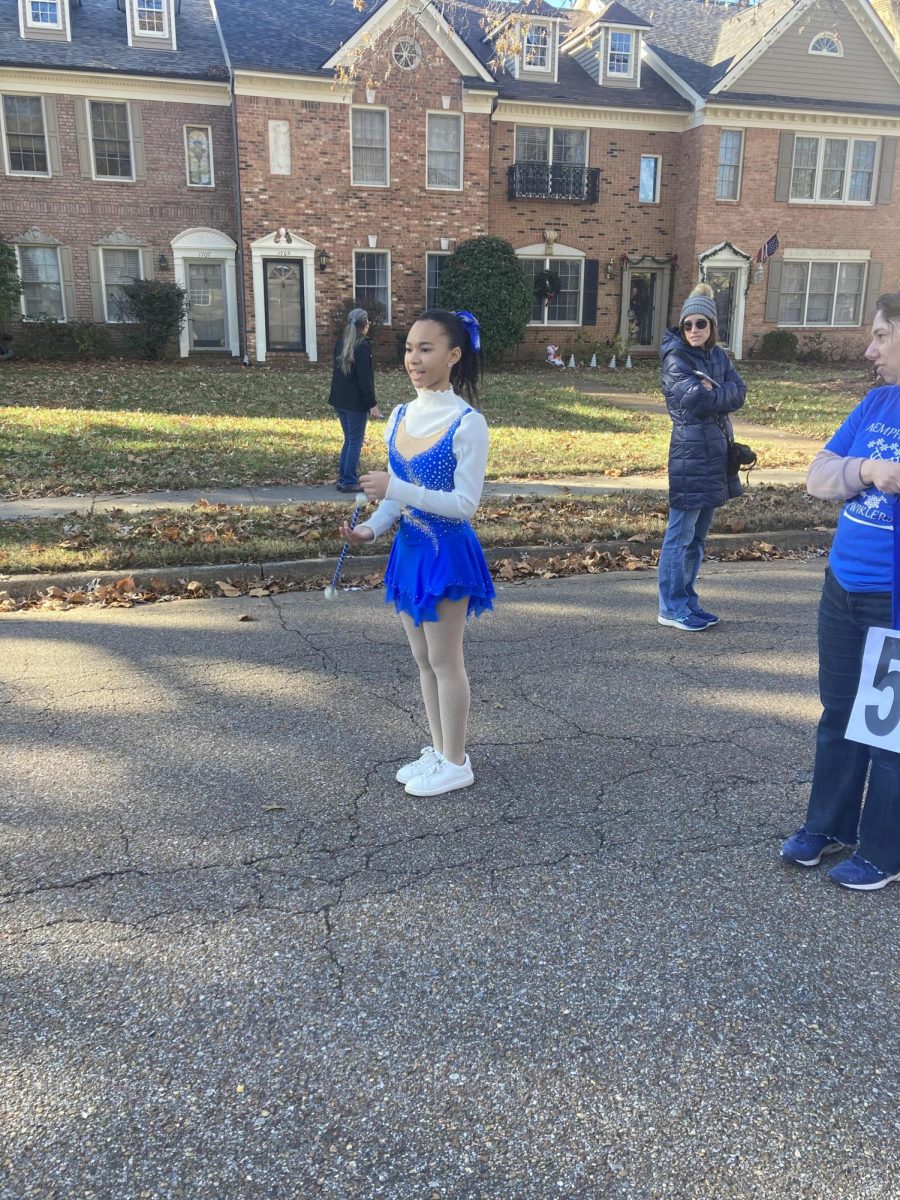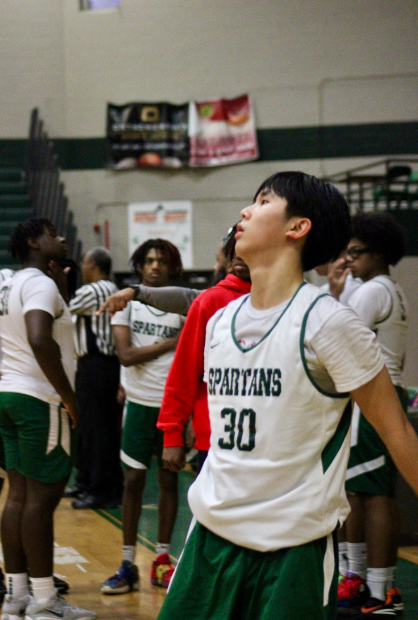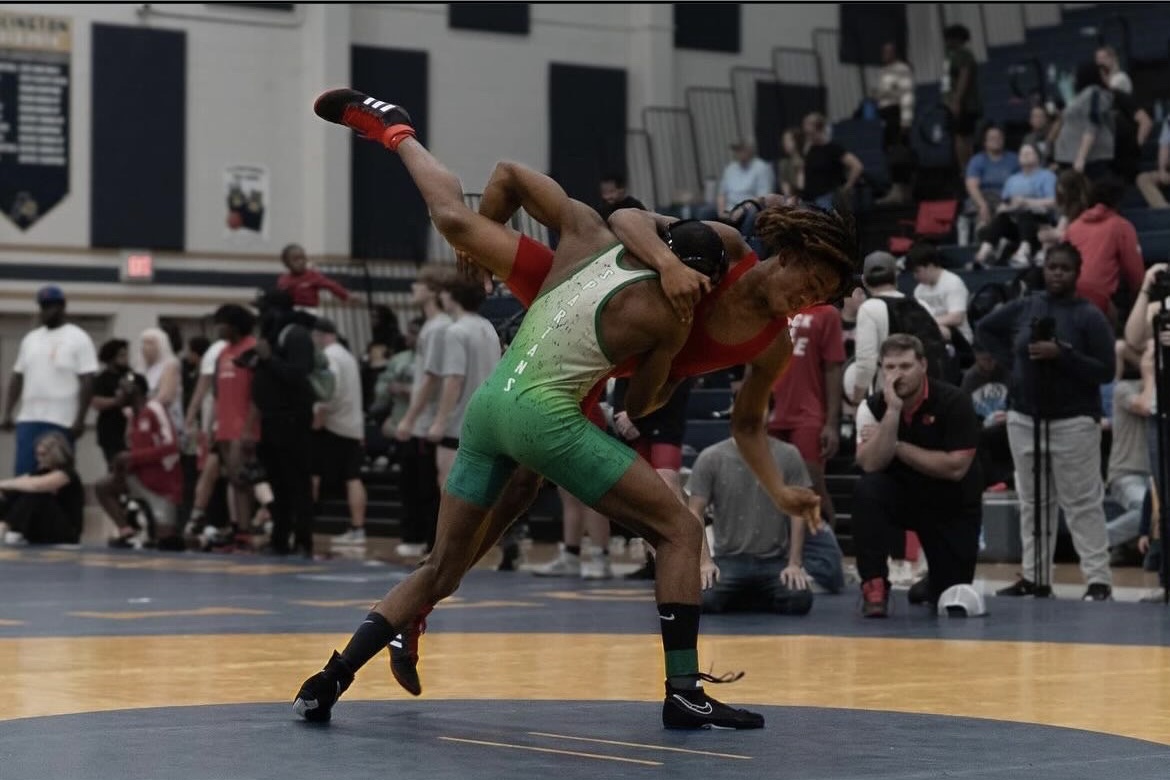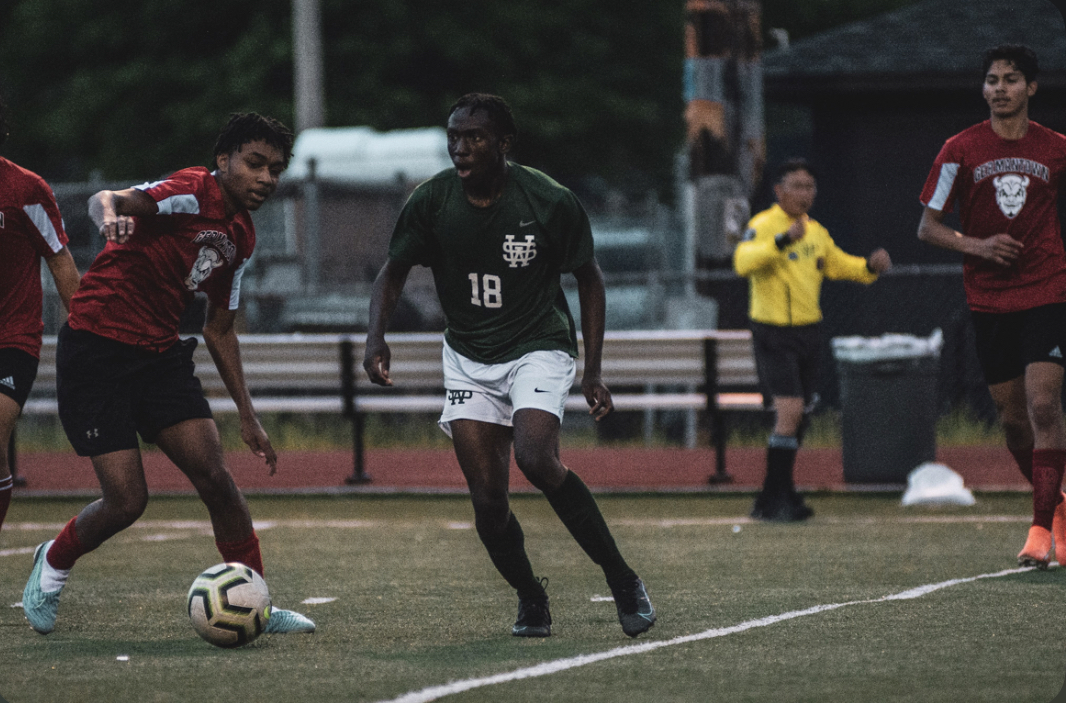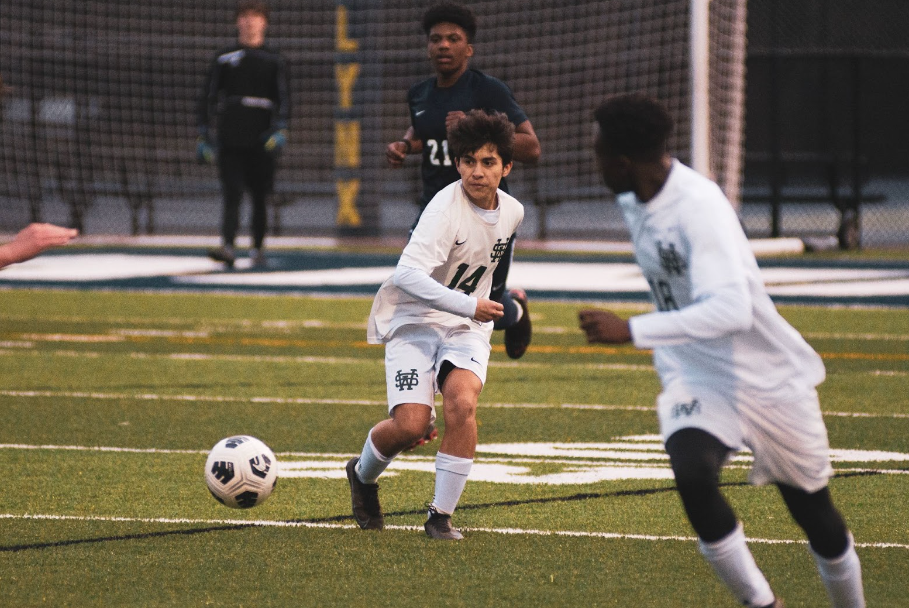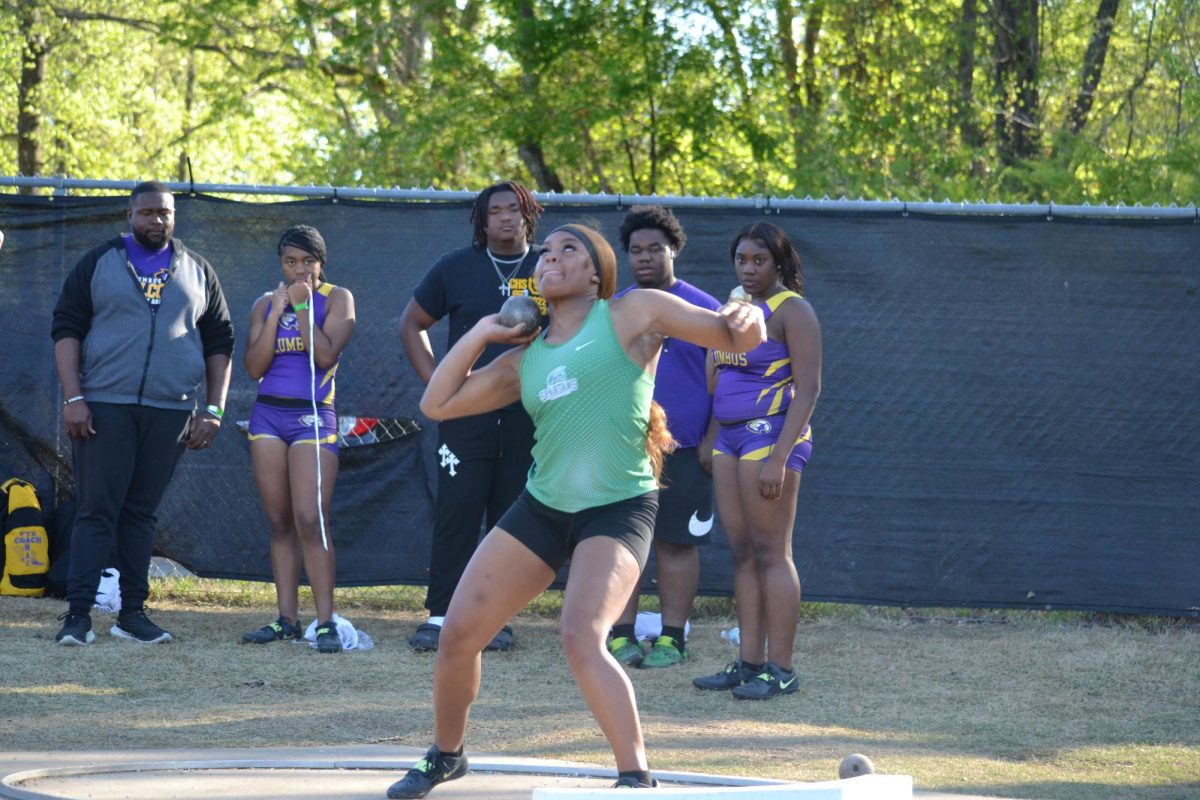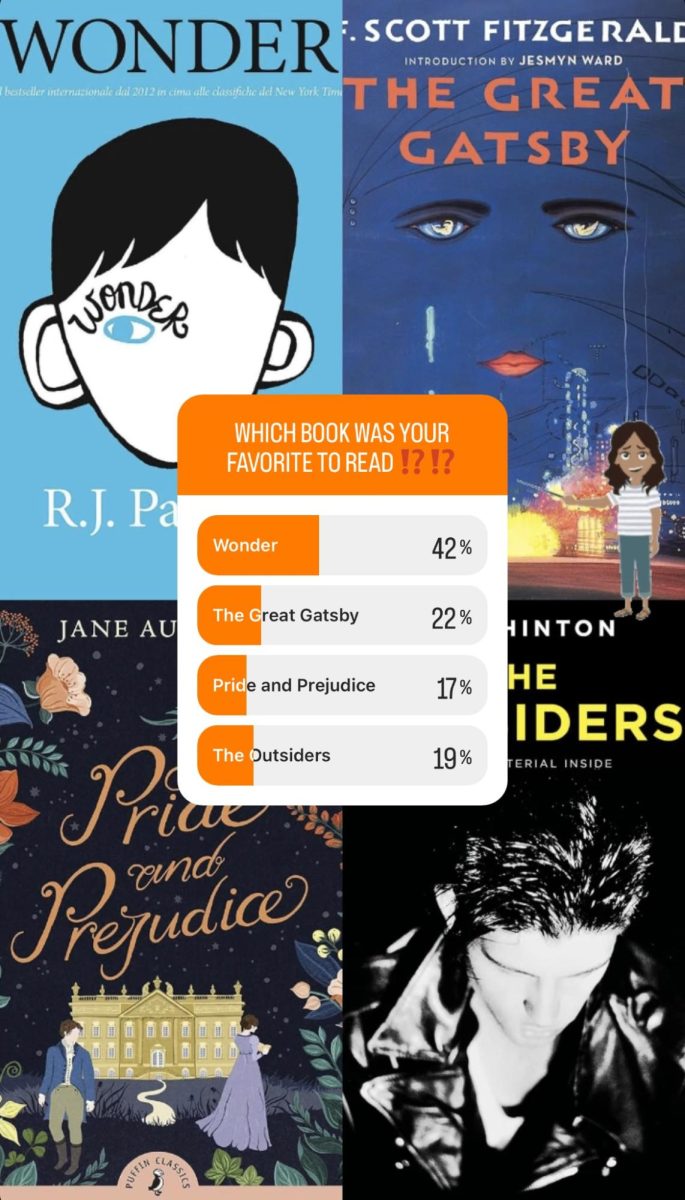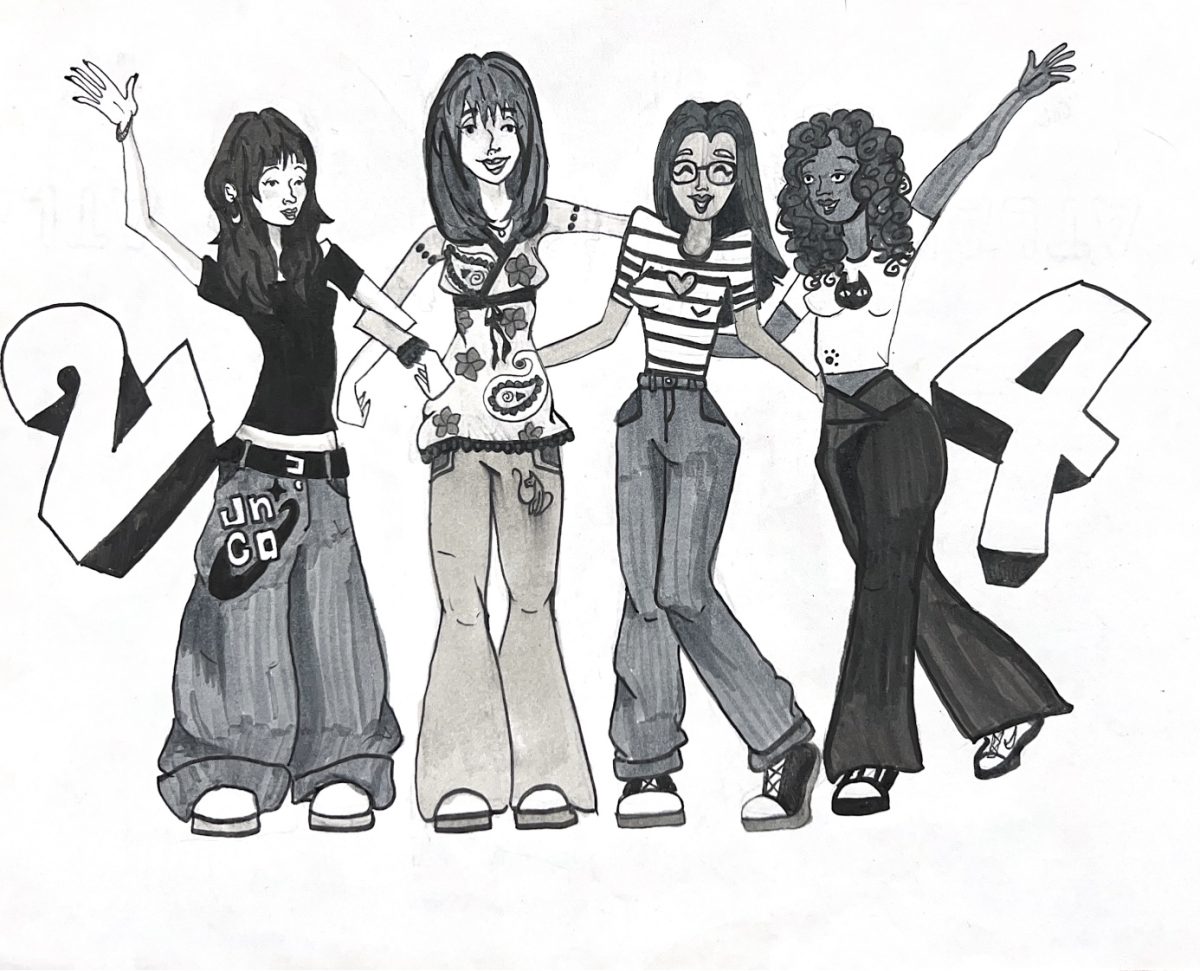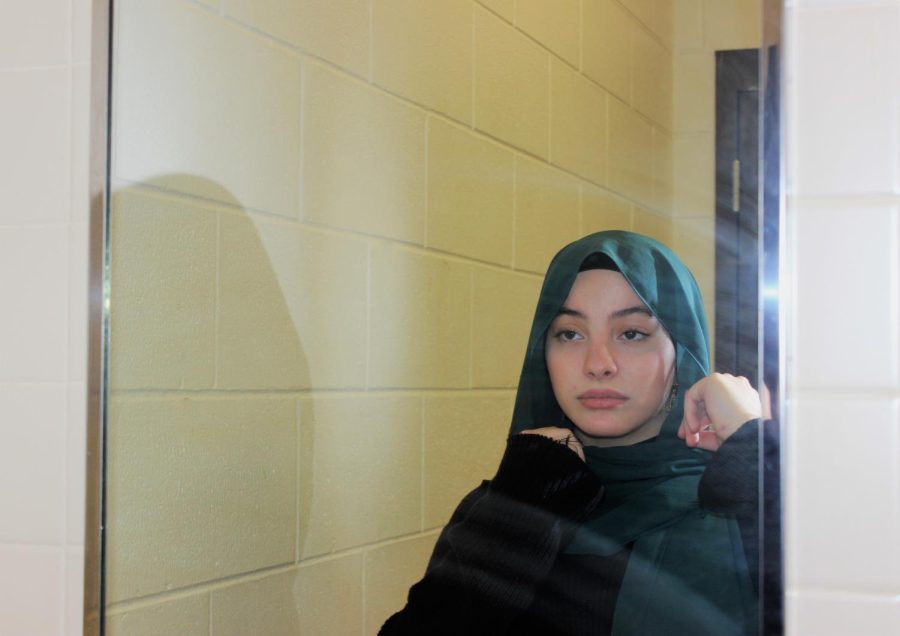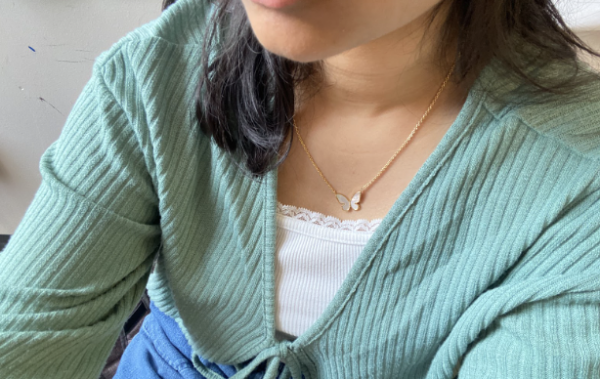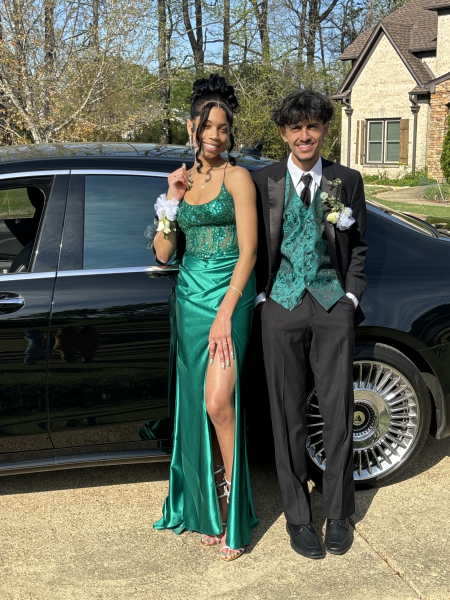Hijabi awareness spreads across the world
Narjis Alabes (11) adjusts her hijab to ensure her hair is fully covered. Many hijabis do the same to uphold their religious practices of modesty.
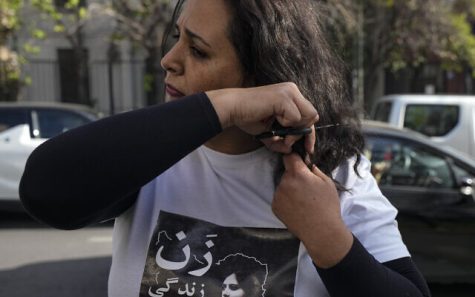
Imagine a world where the presence or absence of a single piece of fabric can mean the difference between life and death. Unfortunately, that is the current state in some Middle Eastern countries under theocratic regimes — a notable one that has been circulating the news recently is Iran. The hijab holds significant meaning in Islam and many women worldwide view it as a way to escape oppression, not bring it upon themselves. The beauty in being able to choose to wear religious headscarves is something these women view as a privilege.
“People are starting to realize that wearing the hijab is a choice,” Narjis Alabes (11) said. “Religiously, it should be a choice. But people culturally, and obviously politically, are making it law and people who don’t wear the hijab — they’re just painting them out to be bad people… Women are starting to realize it’s a religious thing, it shouldn’t be a forced thing.”
In Iran, women are required to cover their hair and dress in accordance with Islamic dress code. This includes wearing the hijab, covering up from head to ankles and staying away from tight-fitting clothing. Even women visiting from other countries must comply with these rules — failure to do so could result in fines or even worse, prosecution.
“No man has the right to tell a woman what she should and shouldn’t do,” Tesnime Abdullahi (12) said. “In fact, the Prophet, may peace be upon him, told the men that if what women are wearing [is] enticing them that they should lower their gaze … What they’re doing in Iran, they’re claiming that it’s the rights that they have and what Islam would want, but they’re really ruining the religion and making bad names for all of us.”
The Iranian government — and by extension Islam — has received major backlash for the death of 22-year-old Mahsa Amini. Amini was traveling with her family in Tehran when she was approached by morality police, who enforce Islamic law, and was taken into custody for not wearing the hijab properly. Law enforcement in Iran released a statement saying that she suffered a heart attack at the police station and died before she could be transferred to a hospital. Although there has been plenty of speculation and theories about how she died, the exact reason remains unknown.
“The Middle East has a reputation for taking the Quran and [its] teachings to the extreme,” Abdullahi said. “So, although [her death] was devastating, it was not surprising. They’ve done worse before. They’ve killed thousands before. But this really hit home for me. I have family in the Middle East … so it was concerning.”
Many shared the same reaction: devastated, but not surprised. Many were angry and took to the streets with their frustration. Hundreds of women worldwide gathered in protest against the violence and unjust actions of the Iranian government. Pictures and videos circulated the internet of women cutting off their hair in public and burning their hijabs. As a result, concerns were raised about the safety of these women who could face jail time and even execution.
“Everyone reacts to oppression differently,” Maimuna Kanuteh (11) said. “If that’s how those women want to protest, I support it. I do think it’s a means to get attention to them and possibly create change.”
Muslim women living in more progressive and tolerant countries evade that level of oppression, but unfortunately they cannot completely avoid discrimination. Those who choose to wear the hijab usually have to endure stares in public, terrorist jokes, thinly-veiled racism and tone-deaf remarks and questions regarding their headscarves.
“I have people ask me all the time ‘Why would you do that to yourself?’” Alabes said. “When I’m able to explain it to them in a thorough way, I hope it helps them fit into my shoes and understand why people around the world wear it as well.”
Thankfully, places with more diversity where people have been exposed to different religious practices early on are safer for hijabis. Memphis, especially, with a Muslim population of over 20,000 remains one of the safest cities for hijabis in Tennessee.
“There’s so many hijabis at the school,” Abdullahi said. “I feel so comfortable wearing my hijab. I haven’t had any issues with anyone here.”
Your donation will support the student journalists of White Station High School. Your contribution will allow us to purchase equipment and cover our annual website hosting costs.

